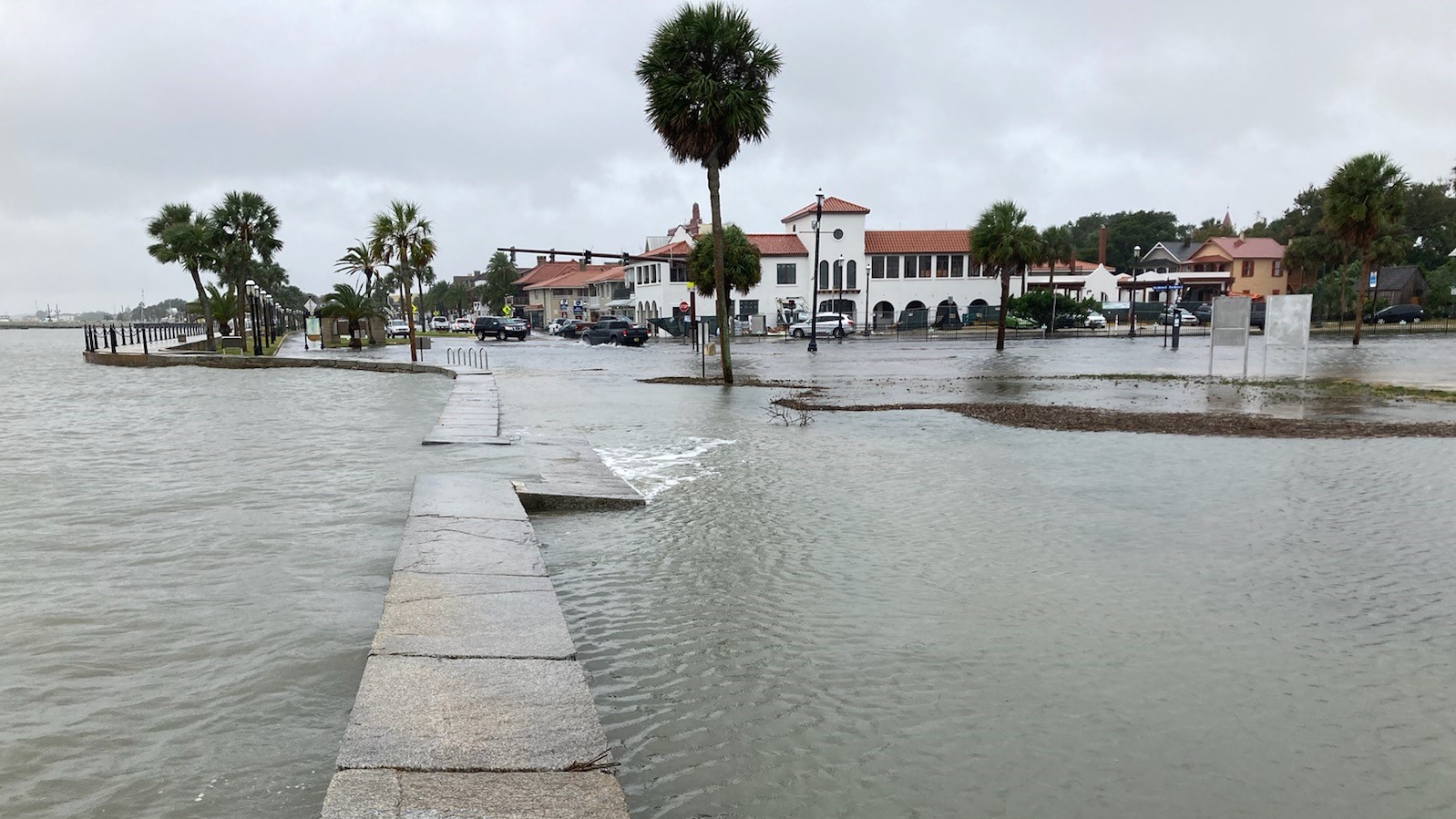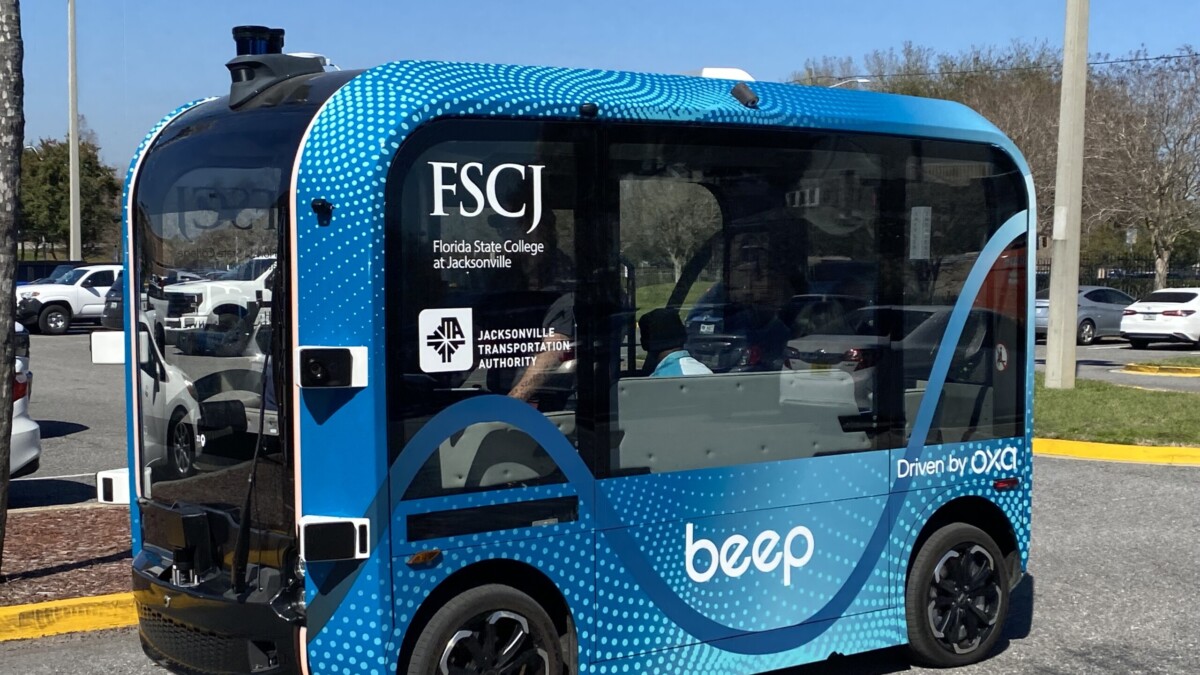Environmental leaders are expressing serious concerns about a bill that would change Florida’s approach to climate change — including elimination of the phrase “climate change” in existing statutes.
The bills would overhaul state energy laws, eliminate references to reducing greenhouse gas emissions, promote natural gas use and impose a ban on offshore wind-energy generation.
Rep. Bobby Payne, R-Palatka, sponsored the House version, HB 1645. House Speaker Paul Renner, a Palm Coast Republican who represents Flagler and part of St. Johns counties, supports it.
Payne’s bill has already passed three committees. The Senate bill, SB 1624, passed the Senate Agriculture, Environment and General Government Appropriations Committee on Tuesday.
St. Augustine City Commissioner Barbara Blonder, an ecologist who also teaches environmental science at Flagler College, said her many concerns about Payne’s bill include its apparent push to turn back climate change mandates.
Bonder also points to the bill’s huge emphasis on natural gas, saying it would “walk us backward away from addressing our climate challenges. This really concerns me and should concern everybody.”
“It’s a fossil fuel and so it does not get us closer to resiliency,” she said. “It continues to contribute to our problems with sea level rise as a result. It removes all references to renewable energy and the reduction of greenhouse gas emissions and references to climate change. Those are all concerning because the previous language all included those and even described very clearly that the benefits of renewable energy accrued to the consumers of this state.”
Lori Ann Santamaria, head of the Jacksonville Climate Coalition, said the bill grants utilities the power to use ratepayer dollars to fund outdated technology. She said Florida residents already feel the effects of climate change in real-time, and ignoring it is “clearly out of step with the desires of the constituency,” she said.
She points to a Yale Climate Opinion poll showing that 58% of state residents believe Gov. Ron DeSantis should do more to address climate change, and 59% believe that local officials need to do more.
Santamaria also notes that a U.S. Department of Energy report says the levelized cost of electricity — the estimated cost required to build and operate a generator over a specified period of time — is now lower for renewables than for natural gas. Renewable energy also is reliable and resilient, with a distributed energy system using solar and battery storage able to operate even if the grid goes down during a natural disaster, she said.
“Any lawmaker supporting this bill is not only ignoring their constituents’ desire for them to address climate change — they are also abandoning the importance of a free market for the sake of special interests,” Santamaria said in a statement to Jacksonville Today after reviewing Payne’s bill. “A free market is technology agnostic, allowing the most cost-effective and reliable option to win out. This legislation essentially ‘picks a winner,’ locking us into a specific technology dictated by lobbyists and allowing utilities to leave ratepayers footing the bill for infrastructure that will be obsolete before the end of its useful life.”
Payne, the House sponsor, did not respond to repeated requests from Jacksonville Today for comment. At the bill’s first committee review, Payne said the U.S. has spent billions on “a climate change initiative and ideology that is unfitting for our country,” without significant results, according to the Tampa Bay Times.
“Our country would not be where it is today without fossil fuels,” he said.
Renner told the Tampa Bay Times that Republican leaders have recently started to address the consequences of climate change to protect Florida from flooding and sea-level rise through new laws and infrastructure spending.
“We have to be not agnostic, but we have to take the world as we find it. And so if the climate’s changing, if that’s going to have negative consequences, we put aside a bunch of money for flooding and resilience,” Renner told the Tampa Bay Times. “I don’t think you should interpret anything we’re doing about maybe an obsolete program or whatnot as a lack of commitment to anything that’s happening in the environment. To the contrary … we’re not backing away one bit from a resilient state and taking whatever the climate sends us.”
Deemphasizing climate change
Payne’s bill focuses on reshaping Florida’s energy policy, mandating that the state promote “cost-effective development and maintenance of energy infrastructure that is resilient to natural and manmade threats to the security and reliability of the state’s energy supply.” That infrastructure is “natural gas resiliency and reliability infrastructure,” it says.
The 33-page bill would eliminate five references to “climate change” in existing statutes, or anything that talks about the state’s energy and environmental concerns, as well as greenhouse gas emissions reduction. The bill also deletes parts of existing statutes that “recognize and address the potential of global climate change wherever possible.” That includes deletion of phrasing that the state is “positioned at the front line against potential impacts of global climate change,” plus it orders cities and counties to hew to the changes.
“A local government may not amend its comprehensive plan, land use map, zoning districts or land development regulations in a manner that would conflict with a resiliency facility’s classification as a permitted and allowable use,” the bill states. “The purpose of the state’s energy policy is to ensure an adequate, reliable and cost-effective supply of energy for the state in a manner that promotes the health and welfare of the public and economic growth. The Legislature intends that governance of the state’s energy policy be efficiently directed toward achieving this purpose.”
A House staff analysis submitted Saturday said the bill provides that certain “resiliency facilities” owned and operated by a public utility that deploy natural gas reserves for temporary use during a system outage or natural disaster are a permitted use in all commercial, industrial and manufacturing land use categories and districts.
The bill prohibits the construction, operation or expansion of offshore wind energy facilities and wind turbines within one mile of the state’s coastline or on waters of the state. It also repeals the state’s Renewable Energy and Energy-Efficient Technologies Grant Program, Florida Green Government Grants, the Energy Economic Zone Pilot Program,and Qualified Energy Conservation Bonds provisions. And it stops community development districts and homeowners’ associations from prohibiting certain types or fuel sources of energy production.
Payne’s bill received unanimous approval from the Energy, Communications and Cybersecurity Subcommittee on Jan. 30. The Appropriations Committee recommended approval on a 20-6 vote Feb. 8.
The Senate bill
Senate sponsor Jay Collins, R-Tampa, said his bill now lines up with Payne’s measure. He said bill supporters are trying to “maintain our stability in the grid” and balance costs to taxpayers, according to a report by the News Service of Florida.
“There are things we’re taking off of the books. There are laws that we’re pulling out of there,” Collins told the Senate committee. “But it’s not because we don’t care about our environment. I think, if you look at what Florida’s doing, we do a very good job as stewards of our land, now and into the future. I think what (the bill) does is it lets us look at this and do the things that actually have a functionable, repeatable benefit.”
But critics point to Florida problems like flooding caused by sea-level rise.
“I’m not sure how it became political to care about our environment,” Sen. Tina Polsky, D-Boca Raton, said. “Florida is ground zero for climate disasters. We are surrounded by water, and the effects are showing.”
Eroding shorelines
Blonder, the St. Augustine commmissioner, said Florida cannot afford to ignore climate change and its effect on cities like hers, where tropical storms and even high tides have flooded downtown, eroded beaches and damaged homes.
“Particularly for St. Augustine, but it also goes statewide with the reversion to an emphasis on supporting continued use of fossil fuels as opposed to renewable energy sources,” Blonder said. “It would decrease our resiliency to sea level rise and the associated impacts on climate change would increase our vulnerability. As a property owner, I know that my property insurance keeps going up, and that is directly correlated with those exposures to these hazards that are correlated with especially sea level rise in our area.”
A 2019 study commissioned by the Florida Department of Transportation found that several parts of State Road A1A in St. Johns County could be vulnerable to erosion, primarily during extreme weather events like hurricanes.
The study focused on a 7.5-mile stretch of A1A from near Guana River Road south to the Vilano Bridge. It found that 16% of the clear zone or roadway is highly vulnerable to erosion, 39% is at medium risk and 45% has low vulnerability. By 2029, those numbers will shift to 42% high vulnerability, 34% medium vulnerability and 24% low vulnerability, the study said.
More recently, Jacksonville’s beaches lost about 1.2 million cubic yards of sand during Tropical Storms Ian and Nicole in 2022. Nicole shattered much of Memorial Park’s riverfront balustrade, repaired after Hurricane Irma damaged it in 2017. Tropical Storm Ian caused flooding throughout St. Johns County as storm winds pushed water past the sea wall in St. Augustine and flooded State Road A1A near the Bridge of Lions.
As Blonder has studied climate change as an educator and ecologist, she said she has had to wade through flooded downtown streets many times as the Matanzas River overflows the bayfront sea walls during storms.
“On more than one occasion, I would say, on a regular basis,” she said. “At least several times a year. … And not just in the Flagler College area, but anywhere in coastal Florida. Erosion of our beaches is a major issue. We have several beach nourishment projects ongoing right now at great expense to all of us as taxpayers.”
Payne just filed two amendments to the bill, and the amended version passed the Commerce Committee a week ago on an 11-4 vote.
One amendment deleted the ability for any utility to develop plans for “renewable energy resources and reduction in dependence on depletable energy resources, particularly oil and natural gas.” The other mandated that all electric cooperatives and municipal utilities operating in Florida must annually submit confirmation that it has complied with the requirements of bill.
“Those who do not submit the attestation required by this section shall be ineligible to receive state financial assistance for power restoration efforts following a natural disaster,” it states.







